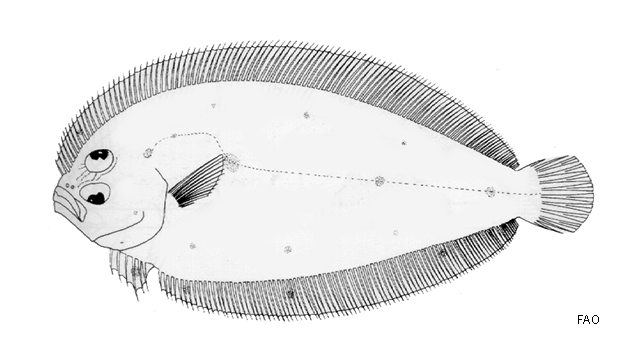| Bothidae (Lefteye flounders) |
| 22.5 cm SL (male/unsexed) |
|
bathydemersal; marine; depth range 253 - 580 m |
| Pacific Ocean: New Caledonia, southern Japan, and the Hawaiian Islands (Ref. 9824); including the Norfolk Ridge and Isle of Matthew (Ref. 28982). |
|
Dorsal spines (total): 0-0; Dorsal soft rays (total): 106-117; Anal spines: 0-0; Anal soft rays: 87-95; Vertebrae: 32-33. Body elliptical, its depth contained more than 2.4 times in SL. Tip of isthmus below posterior margin of lower eye. Eyes separated by a broad and concave space. Interorbital in male broader than that in female. Ctenoid scales on ocular side armed with a row of hairlike spines. Small dark blotches on origin of straight part of lateral line. Small dark dots along upper margin of upper eye. |
| Inhabits mud and sand bottoms (Ref. 9824). Benthic (Ref. 58302). Feeds on small benthic animals. Marketed fresh, sometimes dried-salted (Ref. 9824). |
|
Least Concern (LC); Date assessed: 05 March 2015 Ref. (130435)
|
| harmless |
Source and more info: www.fishbase.org. For personal, classroom, and other internal use only. Not for publication.
